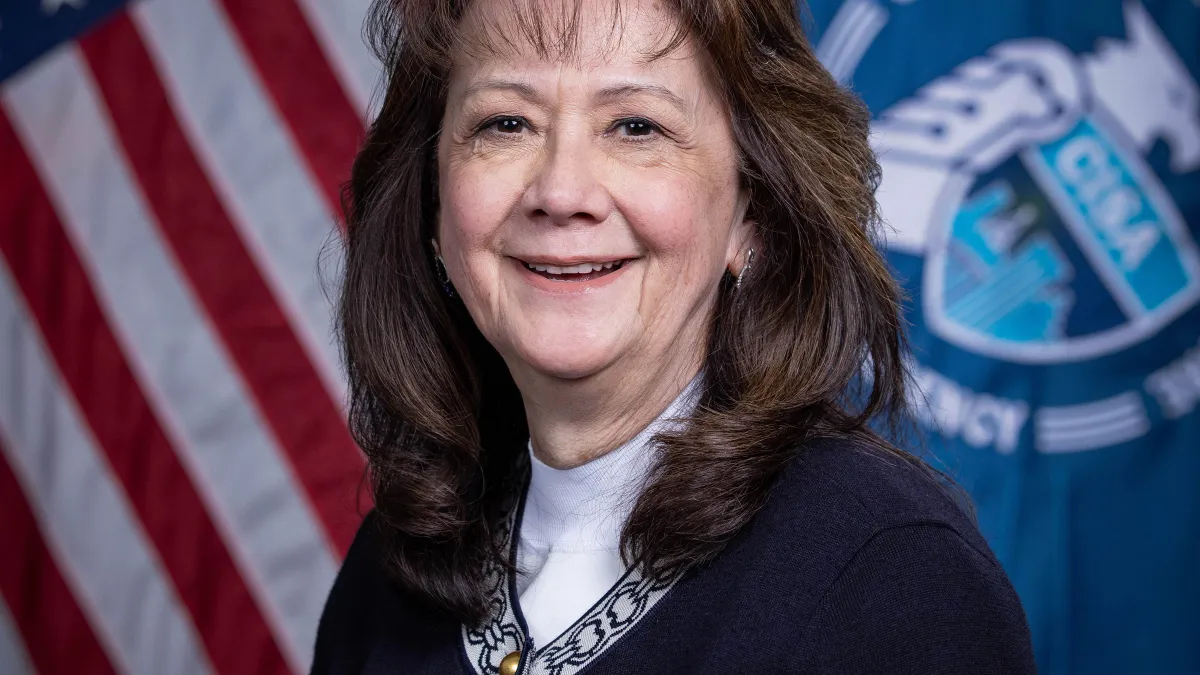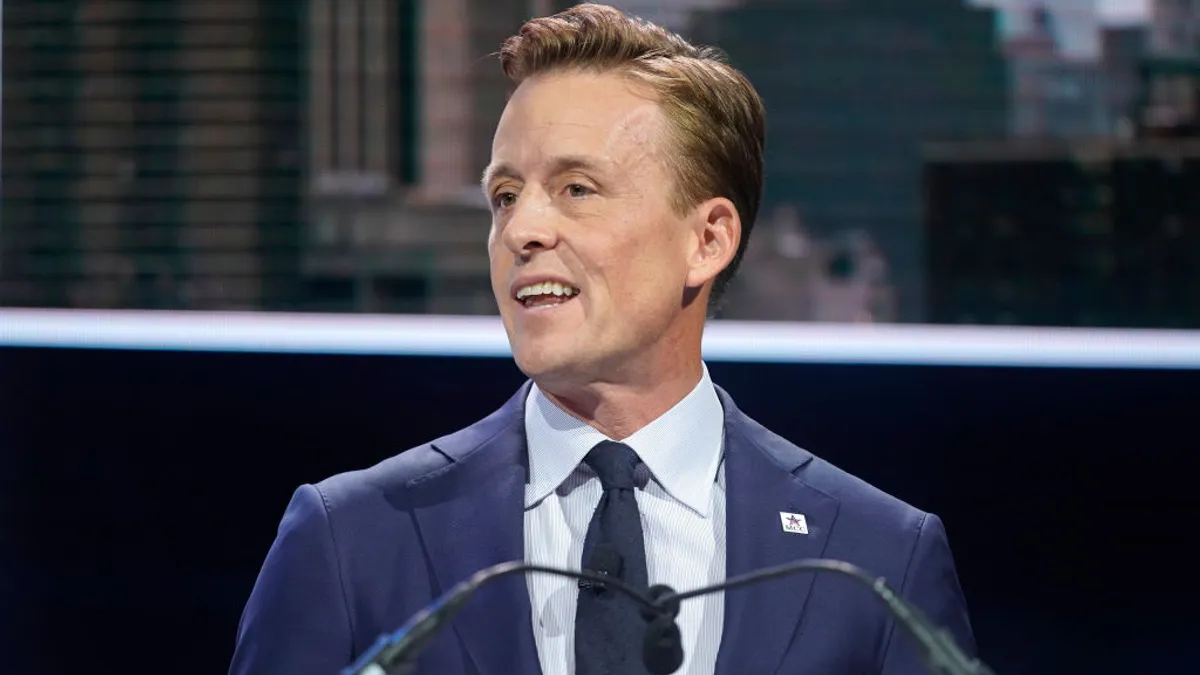Facing a gap in the cybersecurity workforce, businesses are leaning into an unexpected talent pipeline: the U.S. military.
The cyber job shortage slams every industry. Across sectors, industry leaders have long collaborated on research, strategies and initiatives to close the gap, but there's ultimately just not enough qualified staff to apply to open roles.
More than half a million cybersecurity job openings remain unfilled in the U.S., according to CyberSeek. There are only about 1.8 existing cybersecurity workers for each job opening — about half as many workers per job compared to the national average across fields.
Academia, non-profits, businesses and the public sector are coordinating efforts to transition military veterans into civilian cybersecurity jobs to simultaneously provide vets with a stable post-service career and overcome a crucial workforce shortage.

Veterans bring a built-in set of soft skills crucial to cybersecurity — and sometimes even the hard skills to hit the ground running.
A combination of agility, mission-focus, teamwork, problem-solving, and the ability to work under pressure from military experience is directly transferable to the "operational mindset" the cybersecurity field relies on, said Gary McAlum, SVP and chief security officer at USAA.
"We see that when people come out of the military, they're ready to do whatever they need to do," McAlum said. "They recognize hey, bad things happen on holidays and so I got to be ready to go."
Transitioning from the military to civilian life, McAlum said his 25 years of Air Force experience, which landed him in the Air Force Cyberspace Operations Hall of Fame, provided the technical knowledge to join the civilian cyber field, but not the business acumen. The soft skills that come with being a veteran helped, but McAlum still had to take time to learn how the business world worked.
Translating military insights to civilian cybersecurity
Cybersecurity is a high-pressure field where the workforce must be equipped to make the right decision under tight circumstances. In the military, precision under pressure can mean life or death for service members in the face of enemy forces.
Because of their military experience, veterans bring the calm, cool and collected mindset necessary to cyber positions. It's all about being an action-oriented decision-maker, according to Darrell Winfield, CIO at Paya and former flight research officer in the U.S. Air Force.

"What you end up with is a very finished, sharp, motivated, well-trained, well-skilled individual that has been dealing with their specific challenge in some of the most real-world arenas," Winfield said.
Cybersecurity — like the battlefield — isn't a solo sport. Trained in those real-world arenas, working on a team can become second nature for members of the military. Vets excel in teams and cybersecurity "really is a team of teams," said Jim Yacone, chief of mission at the SANS Institute who served as a U.S. Army officer.
At the core of the decision to join the military is also a service-oriented mindset directly transferable to the cybersecurity field, according to Yacone.
The instinct to serve the country translates to protecting the business from cyberthreats.
"The dedication to the mission that veterans bring along with their technical backgrounds, their experience and their core skills really makes them ideal candidates for many positions in the cyber field," said Dr. Eman El-Sheikh, director of University of West Florida's Center for Cybersecurity.
Many veterans leave the service already possessing a security clearance, depending on the type of assignments they complete throughout their tenure. The cybersecurity field is currently facing a bottleneck in hiring because clearances are a lengthy procedure, but many veterans can skip that line to streamline the process, according to both El-Sheikh and Maureen Shrewsbury, career placement specialist at the SANS Institute.
Syncing cross-sector efforts to onboard vets
As a veteran prepares to leave the service, the transition to join the civilian workforce can leave them wondering how their military experience applies. Guidance throughout this period can make or break a vet's reentry in the civilian lifestyle.

In the service, Uncle Sam teaches members of the military everything they need to know, but there's no how-to guide for civilian life, according to Winfield. The lack of guidance can make veterans feel left behind when it comes to working in the civilian sector, but working with transition teams helps overcome that.
Transition teams offer training on how to build a resume based on military experience and other basic services to guide reentry. It's on the vet, however, to take advantage of applicable career training during their time in the service.
Opportunities for professional certifications and development are available in many military roles. "Those are directly transferable to the corporate side," McAlum said. "They provide an indication of professional competence."
There are also programs, such as the National Cybersecurity Workforce Development Program and the VetSuccess Academy at the SANS Immersion Academy, designed to upskill vets to fill cyber roles.
Through a $6 million grant from the National Security Agency announced last month, eligible veterans and first responders receive free cybersecurity training and professional development via the National Cybersecurity Workforce Development Program led by the University of West Florida.
"Our program is designed to provide flexible training pathways across the country to prepare and place vets into cyber roles in the defense industrial base, energy and financial services sectors," El-Sheikh said.
The team is creating a nationally scalable, certificate-based program in line with the National Initiative for Cybersecurity Education Cybersecurity Workforce Framework to fill multidisciplinary cyber roles. The program aims to train 200 individuals in year one and 415 in year two with the long term goal of building a national framework that continues expanding for years to come.
At the SANS Institute, the VetSuccess Academy provides veterans and military spouses with an 100% scholarship-funded opportunity to earn cybersecurity certifications, connect with a mentor and transition to the civilian cyber workforce.
These programs can make a tangible difference in veterans' quality of life. In one example, a VetSuccess Academy graduate doubled their salary so that they could support their family post-service, according to Sonny Sandelius, director of academy operations at the SANS Institute.
Seeing the future need to fill cyber roles, the SANS Institute recently expanded its cyber talent pipeline to reach students in the Junior Reserve Officers' Training Corps (JROTC) at the very beginning of their military careers. By gamifying cybersecurity training and skill-building, the institute's CyberStart America targeted JROTC members last summer to jumpstart cyber career interest.
"The great thing about the cybersecurity role is not only do they provide the opportunity to get a well paid position, but they also provide the opportunity to continue advancing and to continue to learn," Shrewsbury said.




















